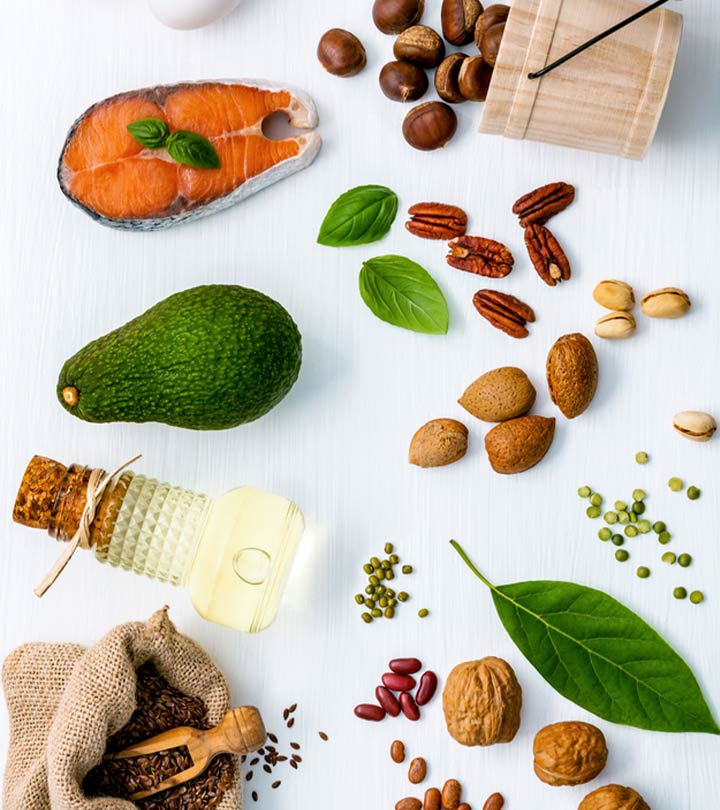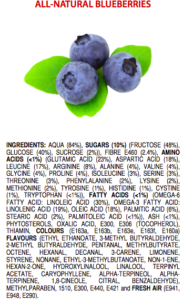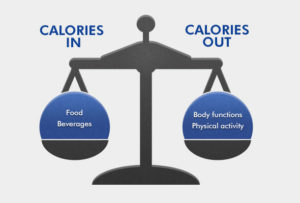
It’s a pretty widely held belief that simply eating ‘clean’ will automatically cause improvements in body composition, however I see time and time again people that swear to me they eat clean but in the same breath tell me they are struggling to lose weight or fat. People are missing a huge caveat with the whole clean eating thing which is in some cases actually causing them to put fat ON, so let’s look at what is going on.
First of all, if you’ve decided to start cleaning up your diet then good for you, that’s a very good decision and I’m not here to try and put you down for that or make you feel stupid I just want to help you get the most out of it. Eating ‘clean’ however doesn’t really have a definition, some might say it’s foods that aren’t full of chemicals, but everything in the world is made of chemicals! The air we breathe, the water we drink the clothes we wear are all made of chemicals and food is just the same. Here is every healthy food enthusiast’s favourite fruit the blueberry and what it’s made of:

Then you would get people who say that ‘clean’ eating is eating stuff that hasn’t been treated with anything, when what they really mean by that is organic which I covered in depth in another article a while ago so please go see that for my views on that!
Anyway my point is is that it depends who you ask, you have to give it context. If you ask a ketogenic dieter they will say carbs are bad they aren’t clean. If you ask a vegan they will say meat is bad for you thats not clean eating etc etc etc.
How I want you to think about food in the future is not in terms of good or bad, with nutrition it’s never that black and white, instead think about whether or not that particular food fits your diet or not. It all comes down to energy balance as I’ve said many times before, what governs whether or not you lose weight is whether or not you’re in a calorie deficit so it’s energy in (calories) VS energy out (how many we burn) every day. So if somebody says to me “are nuts good or bad?” it really depends we need to give that statement context. IF by eating a shed load of nuts everyday it causes you to be in a calorie surplus (provided your goal is weight or fat loss) then I would say that that person should really ease up on the nuts!

Think of your calories for the day as a being like a budget, if you eat foods that are hyper-palatable, calorie dense and not very filling then you’re going to burn through that budget very quickly and either leave yourself being very hungry for the rest of the day, or you’ll just have to eat more to function and push yourself into a surplus and put weight on. The best way to be able to manage satiety when dieting is to eat foods rich in protein and fibre, which is why common advise I give to people is to make sure you have a serving of protein and vegetables with every meal. This will help keep you full, keep the body functioning properly, help spare lean tissue, make your body burn more calories to digest the food in the first place AND make it easier to maintain a calorie deficit and get the physique you want.
Now examples of supposed ‘health’ foods that can be secretly destroying your diet are:
- Acai bowls you see in every health food cafe these days are a big one. Don’t get me wrong these are very nice but at a price of around 400-500kcal per serving BEFORE they add all the toppings to it it’s definitely a food I try to avoid when losing fat due to it’s poor satiety rating.
- Granola is also up there because although it is very nice and supposedly healthy as clever marketers would have you believe at a massive 510kcal per 100g it’s much more suited to put into your diet if you’re trying to bulk up on a muscle building programme.
- Dried fruit and fruit juices are also worth a mention because of how many more you can fit in your stomach before feeling full yet it containing just as many calories make it a great food for off season bodybuilders but not so good for people trying to maintain a calorie deficit, for example 100g dried goji berries contains 362kcal!
- Nut butters can also be something to watch out for, not that they’re unhealthy but a large 43g tablespoon (heaped tablespoon) serving of peanut butter for example is 253kcal!
Back to this whole thing about context, if your goal is to lose fat/body weight I would recommend using these foods sparingly if at all, however if you’re trying to maintain a calorie surplus for muscle building purposes for example, I would definitely be putting them in there. So any food that may be deemed healthy that causes you to put weight on is not very healthy in my opinion, high levels of body fat on an individual have shown time and time again increased risk of heart disease, diabetes, blood lipid issues, liver and kidney disease etc etc.
Remember its not always about what food, not many foods are inherently bad for you, but the quantities you eat some foods in may become problematic towards your overall goals. Don’t always think about which foods are good or bad, but rather how can this food fit into my diet in moderation.


 WhatsApp us
WhatsApp us 
No comments yet, but you can be the first